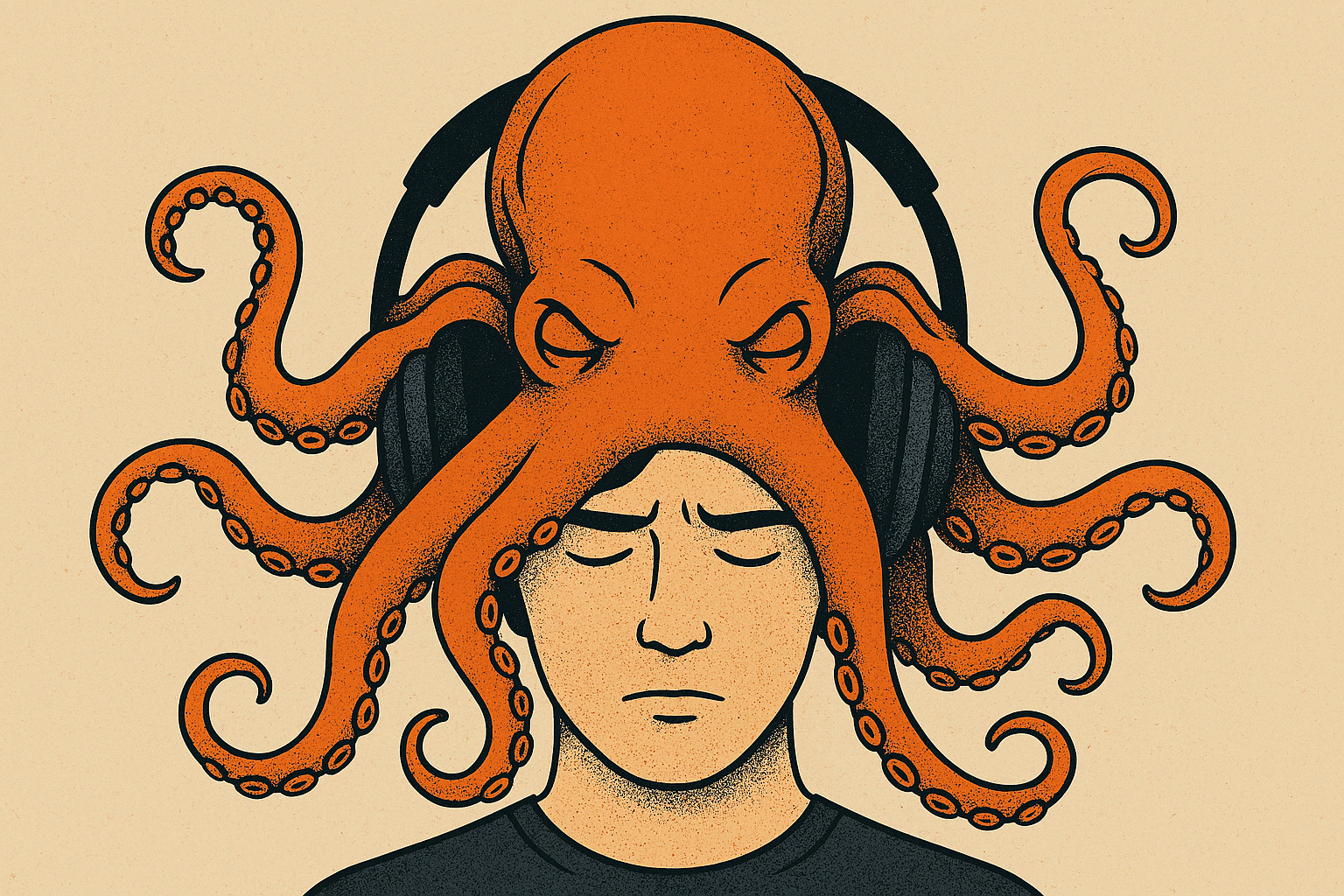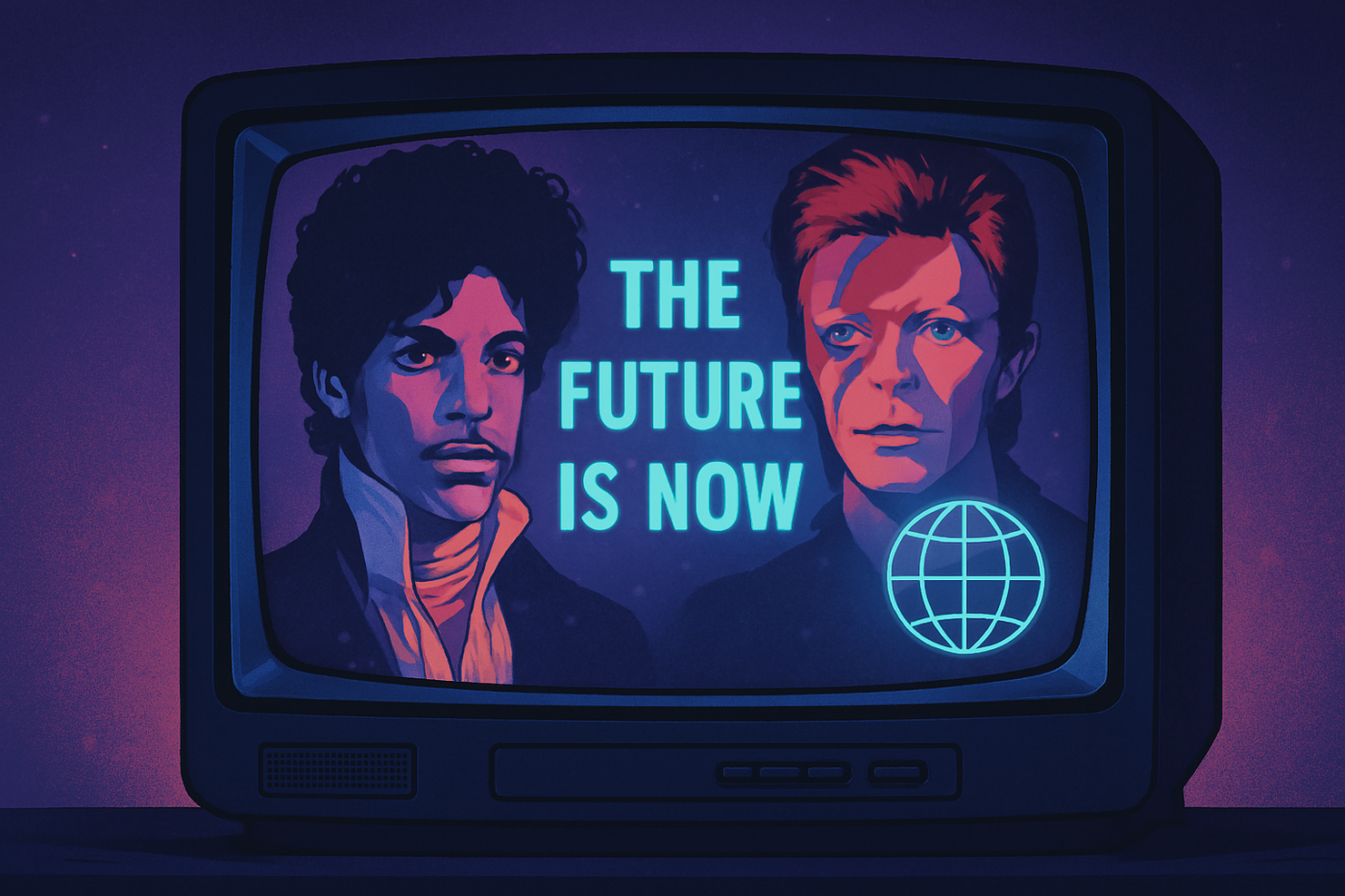They told us music helps us relax, focus, live better. But what if it’s just shutting off our attention?
TRULY LISTENING – CHAPTER 4
Background Music Is Eating Our Brain
🚨 We’re Surrounded
Music is everywhere. In coffee shops, supermarkets, spas, offices, elevators. It plays while we walk, work, sleep. Sometimes we barely notice it. But our brain does.
This is functional music, designed not to be noticed. A constant presence that rarely gets our real attention. But it reshapes how we think, feel, and react.
🛰 Brian Eno, Not Lo-fi Beats
When Brian Eno coined “ambient music,” he didn’t mean YouTube background loops. Music for Airports was a psychoacoustic experiment: music meant to be received, not ignored. It was designed to accompany space, with a subtle, transformative power.
Today we’re immersed in constant, identity-less sound streams. Background music has become mass-produced acoustic wallpaper. It asks nothing from us. It leaves nothing behind.
🧠 The Brain Adapts (Too Much)
Neurologist Oliver Sacks described music as a powerful cerebral stimulus. But when it’s omnipresent, our brain learns to filter it out. We train ourselves not to listen. And that lowers our attention span—even when we truly want to listen.
Recent cognitive research shows that chronic audio overstimulation reduces short-term memory, focus, and our sensitivity to complex sound structures. Passive listening over time makes us less able to feel, understand, distinguish.
🎵 Franco Fabbri and the Sound We Live In
Back in the 1980s, Franco Fabbri observed that every era has its own “sonic environment.” But today, that environment is no longer collective—it’s individual, isolated, hyper-personalized. Listening has retreated into earbuds, losing context and connection.
Fabbri reminds us that music is also a social medium. But digital background music, driven by algorithms, disconnects us from surprise, dialogue, discovery. We become users, not listeners.
🔇 The Value of Silence
We fear silence. We cover it instantly. But silence is essential to relearn how to truly listen. It gives pause, space, breath.
Like in classical music, silence can be part of the composition. We need to welcome it again. Just to ask: is what I’m hearing worth my time?
✅ Conclusion
The problem isn’t music. Or silence. It’s how we use them. We need to detox. To choose. To decide when to listen—and when not to.
Because if music is everywhere but says nothing to us, maybe the problem isn’t sound. It’s the emptiness we’re trying to fill.
📂 Verified Sources
- Oliver Sacks – Musicophilia: Tales of Music and the Brain, Knopf, 2007
- Franco Fabbri – Il suono in cui viviamo, Feltrinelli, 1982
- Margulis, Elizabeth Hellmuth – On Repeat: How Music Plays the Mind, Oxford University Press, 2013
- Haake, A. B. – Individual Music Listening in Workplace Settings (in “Psychology of Music”, 2011)
- Article: The Rise of Lo-Fi Music – Wired (2020)
Our project is independent and non-profit.
If you enjoy what we do, you can support us with a small donation.
This article was produced with the support of AI tools, used for content organization and textual optimization. The sources, ideas and materials come from the archive and activity of the Dancity Association.




